Simon Dixon is the CEO and co-founder of Bnktothefuture.com, fund manager of Bitcoin Capital, and author of the book Bank To The Future.
He has a deep understanding of our monetary and banking systems, and the crypto sphere.
In this interview, we talk about money creation based on debt, the possibility of governments implementing a digital currency, which he thinks is the final step to eliminating our freedom, and how to opt-out of the traditional financial system.
Additionally, we take a deep dive into Bitcoin, how to yield with it, its use cases, and the future of this cryptocurrency.
The very first time I heard about #Bitcoin $BTC and the story of how I got involved https://t.co/Jpbfk7pclV
— Simon Dixon (@SimonDixonTwitt) June 23, 2019
Simon Dixon’s Background

George: All right, guys, it gives me a great deal of pleasure to bring someone to The Rebel Capitalist Show that I really look forward to talking to, someone in the Bitcoin space finally.
That's right. His name is Simon Dixon, and he is an OG, for sure. Simon, welcome to The Rebel Capitalist Show.
Simon Dixon: Hey, thanks for having me, George. I'm embarrassed to say I didn't know much about your content.
But I've been binging on it for the last week, and I think you've done some amazing stuff educating people.
George: Well, thank you very much. I appreciate it. Now, you've done some really cool stuff too in the Bitcoin space, and actually in a lot of things in finance. Can you get us up to speed on your background?
Simon Dixon: Yeah, sure. So for me, it's been a bit of a 20-year journey.
I started studying academically, economics, and then I went into the banking sphere. So I started as a stockbroker, worked as a market maker on the London Stock Exchange and I worked in investment banking, taking companies public.
In 2006, I decided to return to my original economics work and question some of the things I was taught academically because nothing made sense to me.
So I started giving public speaking at that time on the topic that nobody in the world really cared about, which is the problem with banking.
Then in 2007, 2008 people got pretty interested in banking, and at that stage, I decided that I wanted to launch a bank that wasn't exposed to the banking system. So my ignorant idea was to try and launch a non-fractional reserve bank. When I got deep into the regulations, I realized that it was actually impossible to do it.
So I wrote this book called Bank to the Future: Protect your Future Before Governments Go Bust.
At the same time, I met this person, someone from the Monetary Reform community that introduced me to Bitcoin.
So I went and spoke at the first Bitcoin conference in the world, and then included it in the book. It was the first published book to include Bitcoin.
I've just been investing in the industry since. So I'm a shareholder in well over 100 of the companies, the largest companies in our industry.
And we bring investment opportunities to those that want to invest in alternative finance, and that kind of brings us to where we are today.
The Problematic Side Of Banking

George: Yeah, that's fantastic. Now, can we go back and talk about the banking system?
I was listening to one of your earlier podcasts, it was sensational.
You really dissected the fractional reserve system, and then your objective to try to create something that didn't comply with those standards. Can you explain that a little bit further?
Simon Dixon: When I first started discovering the real problematic side of the banking system, I broke it down to three problems and tried to find a way to solve those problems, but failed.
- The first was when you deposit your money at a bank, the bank legally becomes the owner of that money.
- The second part of it is that when they become the legal owner of your money, they can essentially spend it as they choose. They can redirect the flow of debt, and they can use it in order to redirect to what they consider the lowest risk, highest-return asset classes like real estate usually.
- The third problem is what we're experiencing, or is getting attention right now, the money supply is essentially a function of debt.
So I try to help people understand the difference. I mean, in your videos, you talk about the correct terms like M1, M2, M3.
But for me, I think of cash and coins as money created by the government, and the rest as digital currency that represents the currency created by the government. So the digital dollar or the digital pound or the digital euro, it's created by a bank and it's backed by debt.
George: Simon, I'm sorry to interrupt.
How do you see bank reserves in there that the Fed creates?
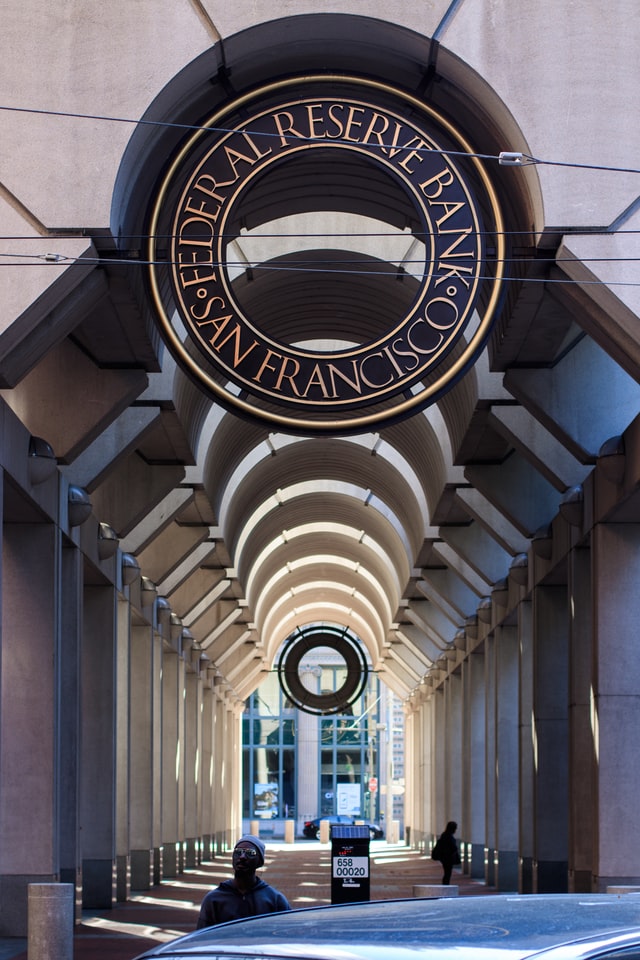
Simon Dixon: So bank reserves would be, again, that's a digital representation. So all of these are digital representations, but the actual dollars created by the government would be what I consider cash and coins.
George: Okay, got it. Got it.
Simon Dixon: And the main distinction being that it's not backed by debt in any way, shape, or form. So with the fractional reserve banking system, they call it, there are no fractions.
Therefore, the money supply is a function of finding new markets for debt and the bank's willingness to lend depending on the credit risk at that time.
So, you have this ever-expanding money supply. What I wanted to do with the whole non-fractional reserve bank was find a way that people could own their own money, people could spend their own money, and it was based upon non-leveraged assets.
That you don't actually have to lend money in order to create new money, and we tried to find a way to do that.
Money Creation And Debt
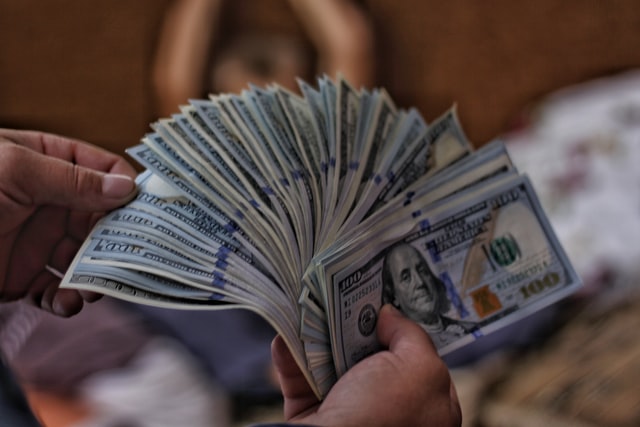
George: Okay, so I want to back up a bit.
-
How much does government spending play into the creation of new money? Is it a big part of it or does it all depend?
I know, the commercial banks and the retail banks create a vast majority of M2 money supply, we'll call it broad money.
-
But does the government play a role there when they deficit spend and then the Fed monetizes it by creating more bank reserves or how does that work?
Simon Dixon: Yeah, certainly. So you've got different organizations that create debts in different ways. You've got consumer debt, you've got business debt, you've got government debt.
And more recently, you've got central bank debt as well through QE but by the government debt.
So all of these different money supplies create a very complex web of complex economic models to try and stimulate more consumers to go into debt in order to stimulate the economy, more businesses to go into debt, and then governments to go into debt.
And then when they're all maxed out on their credit cards, you look for another form of institution that can leverage it.
George: Yeah, okay. So how would it work for lending with a banking system that wasn't fractional reserve?
Because I mean obviously, what most people will say is, “Oh, that's impossible because the money supply wouldn't be able to expand with the economy, and therefore, it would hamper future economic growth.”
Simon Dixon: The important thing to make a distinction between is money created is debt on debt.
There's nothing wrong with the debt itself. If somebody earns money and lends money and wants to receive a yield on that, then that's a great innovation.
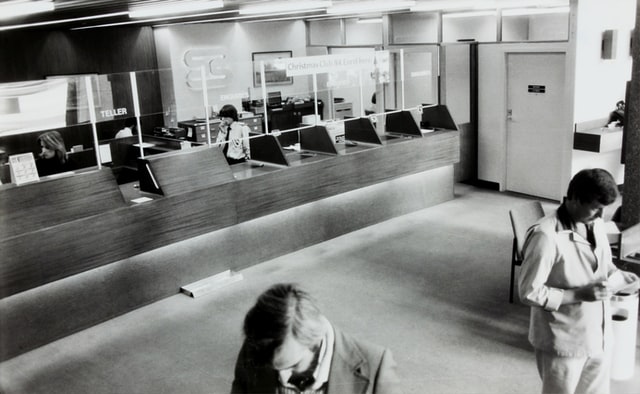
There are many products that can allow for that to happen. But it's when you conflate, if someone were to say, “Let's create a monetary system from scratch”, I don't think anybody would have come up with the system of, “Well, let's allow the private banking sector to create new money every time they issue a loan.”
By combining those two forces, you end up with this crazy Ponzi like system, whereby in order to have more money, you have to have more debt. If you want less debt, you have to have less money. And then you have all these mechanisms to try and stimulate the business cycle in between. But the reality is pretty simple. More debt equals more money, which equals more growth. Less debt equals less money, which equals less growth.
The Correct Role For Money Creation
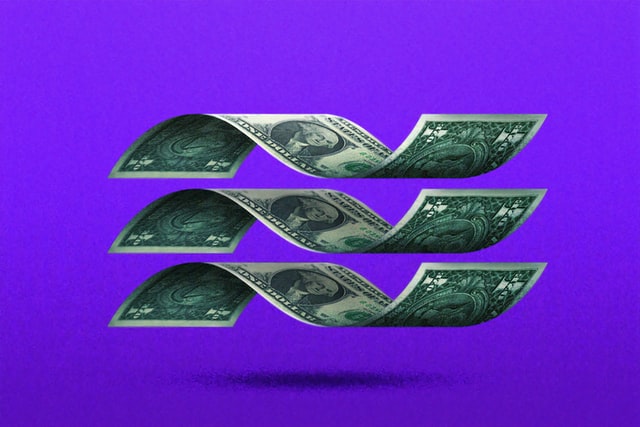
George: Okay.
How does velocity play into that? Because, is it possible for there to be less money, but maybe the same amount of growth if we have the velocity of money circulating?
And then I guess my next question would be…
Is it possible to have just debt without the expansion of the money supply to stimulate or to work with that economic growth if the unit of currency is decreasing?
And I know I probably confused everyone there. But the way I see it in my mind is if you got $1 or one Bitcoin, let's say, it doesn't necessarily mean that you need $2, you can just divide that $1 or one bitcoin into smaller fractions, and then you still have more currency units to expand the economy.
Am I seeing that right or am I missing something?
Simon Dixon: I guess there's two different things there. So with traditional money, imagine if we just had one money supply called M, and it was completely transparent how much money there was in the economy.
If you wanted to cool down the economy or stimulate the economy in order to create inflation or deflation, then everyone could see that the government is creating new money, injecting it into the system, or they're not.
I think there are different theories around this, like modern monetary theory and various other things.
But what I think people get confused about is what is the correct role for money creation? Who should actually be in charge of creating a nation's money supply?
If you think about it, fractional reserve banking was really a capitalist, free-market solution to money creation. It was let's give it to the private banking sector.
So many Austrian and Libertarian economists or ideologists see fractional reserve banking as being the enemy, but actually it's a more private form of money, because you're outsourcing it to the private banking sector.
Now, obviously there's crony capitalism there, and there are very few organizations that actually get a banking license, and therefore, it creates this oligopolistic type of behavior that is then subject to crony capitalism.
So there's not quite a free-market solution, but it's a more free-market solution than actually governments creating money.
But if you have governments actually creating that money supply, so at the moment, what are we seeing at the moment?
In order to inject more money into the system, the Federal Reserve is creating some money or the central bank is creating some money, and then they're using that in order to purchase bonds, where the government is really indirectly creating money, but borrowing it. That just adds a bunch of interest into the equation, when really, it could have just been created directly by the government without actually having to borrow it.
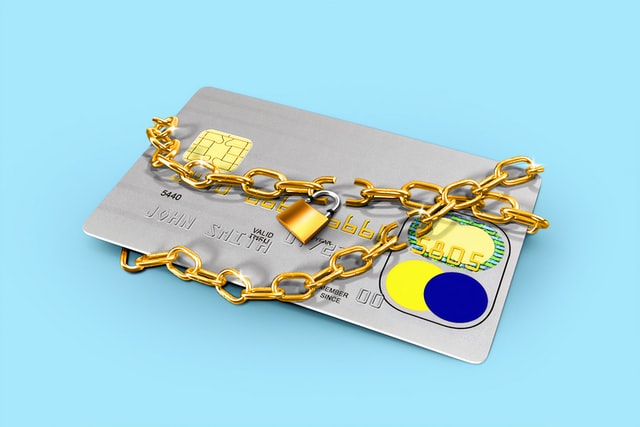
And then you could have a real transparent form of money, which wouldn't be subject to all these indirect maneuvers to try and stimulate the money supply.
It would be a lot easier to judge a government on whether they screwed up their currency just by a system of governments actually creating that money.
Now couple that with competing currencies like Bitcoin, then you have an opt-out system. Because I think that's what we're moving towards right now with these central bank digital currencies.
You are going to see governments actually taking back the ability to create money in order to bail out the economies and different parts of the economy. That competes with private forms of money like Bitcoin and gold as a store of value. You'll have these competing systems.
And, don't get me wrong, there are some real big problems with governments creating money and we can go into some of those.
But at the moment, we are in a Ponzi scheme. And that's why on my YouTube channel in 2010, I published a video called the Great Depression of 2020 because it's just tracking these trends and recycling and financial engineering.
The Economic Future: Banks Go Bust And Consumer’s Get A Government-Backed Digital Currency
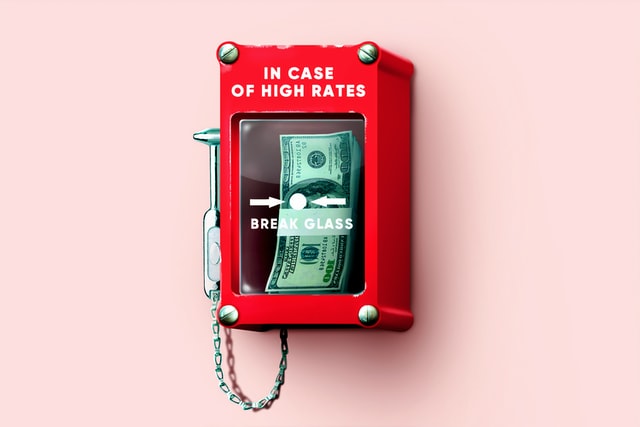
George: Right. So, okay, I want to take a step back. So if the government is creating money directly without the Fed having to monetize it, so we kind of changed the system a little bit.
The Treasury is just basically spending money into existence. I think a lot of people would argue that they already do that, but then to decrease the money supply so we don't have this hyperinflation, then they've got to tax it out of the system.
So if inflation does run a little hot, then they've got to increase taxes. Is that how it works?
So you see that as one system, but then you also see people's ability to opt-out of that system of like, “Wait a minute, I don't like this. Something smells fishy here.”
Then they can move over to a gold-backed system, or maybe a Bitcoin type of system. Is that how you see the future playing out?
Simon Dixon: Yeah, I think we're going to see governments issuing central bank digital currencies, or the governments just issuing those currencies direct, which is going to be debt-free.
The way that I think that's actually going to happen is, let's just look at where we are right now. So you've got this mountain of debt.
You've got people that are depositing money at banks. You've got insurance schemes that are on the hook for way more money than they actually have in those schemes with deposit insurance schemes.
George: The FDIC?
Simon Dixon: FDIC in the U.S. and others for other countries. Essentially, what you have there is when people start…
So I'm forecasting the real catalyst effect for us moving from a financial crisis to a depression is going to be when people stop paying their mortgages.
With the levels of unemployment we're seeing right now, the levels of bankruptcies, what we saw in the lockdown, people choosing between feeding their families or paying their mortgages or paying their rent, and that has a knock-on effect on the landlord that needs to pay the mortgage, you start to enter a 2008 style system.
Now, the banks have either done two things. They've either taken on that risk directly, or they've sold it to your pension or other non-bank institutions.
So we're not 100% sure where the risk lies. My guess is somewhere in between. It's non-bank institutions and bank institutions, and each bank will be slightly different.
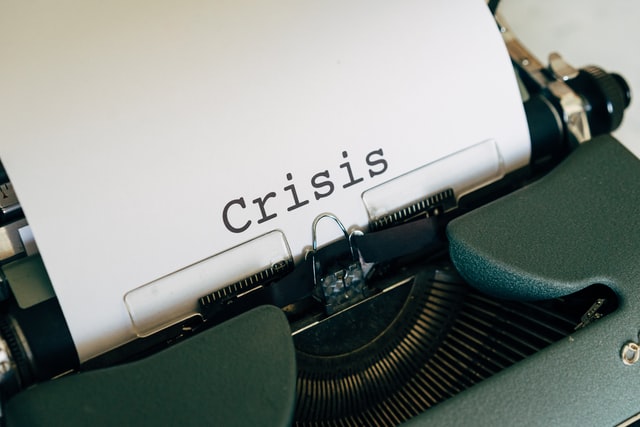
So imagine we enter another scenario like 2007, 08, where a bank needs a bailout.
I think as we see with the social unrest at the moment, if we couple this with another banking bailout, it's just the appetite to achieve a banking bailout, like we did in the confusion of 2007, 2008.
I just don't think that people will allow that to happen, and there'll be just so much unrest on the streets.
So what other options do they do if they get in financial difficulty? Well, they could do a bail-in, but then that's like the end of your bank.
Taking your deposits as money is definitely not a desirable outcome for the future of that bank.
What I think is going to happen next is I think that either governments or central banks are just going to let the banks go bust, but then find a way of consumers not losing their money.
One way to do that would be to get them all to download an app, and on that app, it just simply has the same amount of money that you had in your bank account.
But in order to get it, you have to download this app, it's the same money supply, but a different money supply. It's not debt-based money, it wasn't created at the bank through a loan.
Simon Dixon: It's just simply replacing one form of money with another, which if it was done in proportion is non-inflationary, not deflationary, just replacing one form of money and taking out all the interest that makes it an efficiency in there.
I think this is their last monetary tool. In an environment where they can't play interest rates, QE is less effective, all of the traditional monetary policies and fiscal policy is just going out of control. I think this is their last trump card to pardon the pun, where I think they'll just simply allow people to download this app and have this digital currency.
Then, essentially, that central bank is raging war on retail banks. They don't want to be in the business of retail banking.
So they'll open up technology, there are API keys and allow financial technology companies to build applications on top of it and deal with all the customer service part of it.
But I think you're going to see financial technology companies building technology on top of central bank digital currencies or government currencies, if they want to take out the central bank too, and a radical monetary renegotiation as a result of this health crisis just chucking absolutely everything at the financial system.
George: Yeah, okay.
So and then the motivation for the central bank or the government, whomever was in charge, let's say, of this new digital currency would be to circumnavigate the banking system so they can have more control over the money supply?
The Scary Side Of A Government-Backed Digital Currency
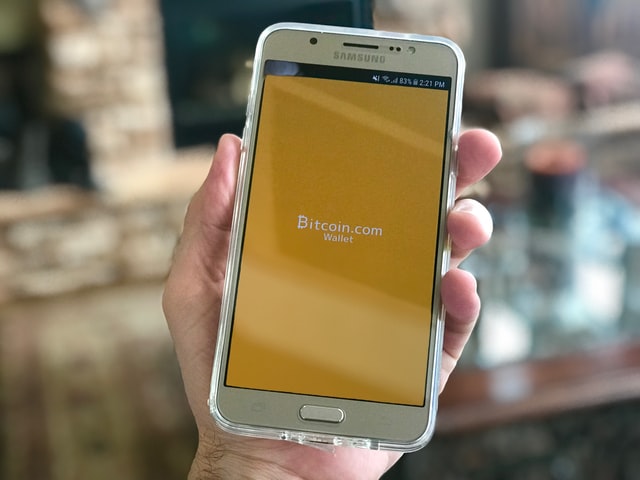
Simon Dixon: Well, this is the bit that really scares me. The central bank or the government have to do something.
I don't think they can bail-in. I don't think the bank can bail-in, I don't think they can bailout. So they have to come up with a new solution of depositors not losing their money.
And I think the credit risk of the bank, depending on each bank's situation means that they have to just find a way of doing that.
Now, you touched upon a really interesting point, which is the consequence of what those currencies are going to look like. So at least with the current banking system, your money is one step removed from the government.
Imagine what happens when you have a government or the central bank issuing this currency in this way, and having the payment relationship through this application.
You can just imagine it right now. Imagine me and you doing a transaction. I'm in one country, my island thinks that I should be paying them some tax.
You're in another country, your government thinks that you should be paying some tax on that transaction. And it's routed via Skype or Zoom.
Therefore, depending on where those servers lie, they also think they should get some tax out of it.
If that's connected to the central bank digital currency, you can imagine three different governments who will try to automate their tax collection and then you finding yourself in a scenario where you're saying…
“Well, I should have only paid one government in that transaction. It's automated out but I'm going to have to dispute these three different governments who have automated my tax collection.”
Then, during that time, that's also already connected to the passport system, so your passport gets switched off while this is trying to be resolved.
And maybe you try and leave your house and you haven't actually got the vaccine that allows you to actually exit your house during this lockdown.

You can imagine all of these different systems conflating with your financial system in this app.
In order to download the app, you have to actually opt into some kind of tracing and tracking. You can really see where, just like we saw during 9/11, it was a reason to opt-out of basic liberties, freedoms, human rights out of a disastrous situation.
Simon Dixon:
You can see the exact same thing happening here.
I think this is the catalyst that the government needs and what's the drug to get people addicted to this app and this money? Well, it's helicopter money. It's a universal basic income. It's download this app, we'll give you some free money.
If your bank goes bust, download this app, you'll have all your money and protected, but you're going to have to opt in to all these things when you download the app.
That's why I believe that the opt-out… Because fiat currency is great, running your life on Bitcoin, I've been doing that for a long time, is very complex.
It's not an easy thing to do. You have to have a certain level of reserves in order to sustain the volatility. So it's not appropriate for certain things.
Fiat currencies are great when if your rent is charged in dollars, and you pay in dollars, then you can manage your life around that.
When you're trying to do it in a foreign currency or Bitcoin, that's a very complex thing. So fiat currencies are very good for your personal expenditure, for your day to day life, but it's just a disastrous place for your savings. So this is where these competing currencies become really important.
The Difference Between A Government-Backed Currency And Our Electronic Dollars

George: Yeah, so this gets really Orwellian very quickly to your point.
I think a lot of people don't understand the difference between a government-backed digital currency, and the electronic dollars we deal with now.
They're like, “Well, Simon, what are you talking about?
It's already a digital currency. I just use my ATM card, and I don't have green pieces of paper everywhere. I don't carry quarters and nickels and stuff like that. It's all already electronic.”
But I think obviously, the big missing piece there, is that the electronic dollars we use now aren't tracked on a centralized ledger, let's say, that sits at the Federal Reserve, or the Treasury, where they can track every single dollar, with like a serial number, as an example.
They can control where those serial numbers go. They can see where they're spent, they can see where they go.
More importantly, or I don't know if it's more importantly, it's all really important, but they can control where the spending flows.
Because I would take it to a whole other level in the sense that not only what you're talking about, but then let's say you get a DUI.
They could say, “Okay, well Mr. DUI person, we're just not going to allow you to buy alcohol for the next three years.” Now, you may argue that that's a good thing. That's not what this video is about.
But the bottom line is it gives them that type of control, where if you go with your phone app like you're saying to the local store, because they can control those digital currency units, now all of a sudden you go to use your phone to buy a certain product and it just won't work.
All the merchants have to be connected to that system so they can all read the serial numbers on each currency unit.
I think that's the big disconnect for people on why a government-backed digital currency has so much more downside from a libertarian standpoint than just these little electronic dollars that we have now.
Can you explain that a little further?
Simon Dixon: Yes.
So as we said, the current version of the digital dollar is created by the private banking sector every time they issue a loan. So, if you go to get a mortgage, then you go to your bank, they create a digital dollar when they issue that loan. It simultaneously puts an asset and a liability on the bank's balance sheet.
You feel like it's someone else's savings through the financial markets or something like that. But it's actually newly created money.
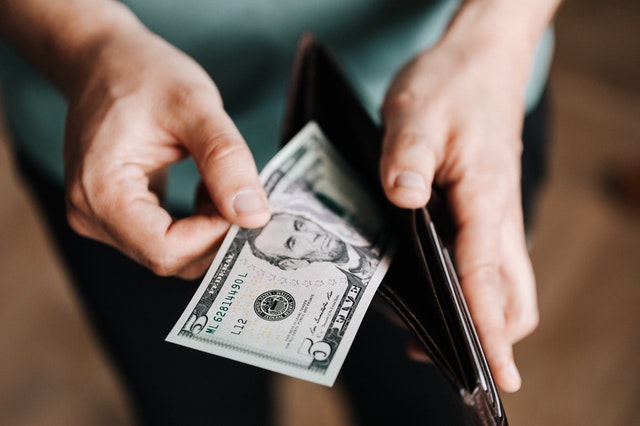
So at the moment, you have banks, which are one step removed from governments or central banks, and therefore, when governments implement new laws around anti-money laundering, essentially they put together laws that all the banks have to follow, but there is also some rights in terms of access to data.
I know laws have changed a lot recently, whereby governments can just request that information from a bank.
But there is a due process in there at the moment in order to gain access to those records, your transactions, and what you're actually doing.
- The problem, which is the plus side, adds a few layers of additional process in there.
- The downside is that because of the way that the money is actually created when it's backed by debt, you get this Ponzi scheme like property to fiat money.
So really, if that system is coming to the end of the debt cycle, and it looks like it's reaching that stage where the system's no longer going to sustain the debt, then we move to another system.
Which is removing a lot of that, and then you're right direct where the intersection between politics and your financial affairs, and privacy just get depleted away to the next stage.
We all know that when you implement these new laws in order to get out of disastrous situations like this health crisis, those don't get reverted back afterwards. This is a one-way ticket.
We saw that with the amount of privacy infringing policies that have been implemented because of the we must attack these money launderers.
But they're subjecting the entire world to things that are open to abuse, because they've got to do it in the name of money laundering.
Now, I do appreciate that they are trying to get out of the bad actors and that's part of the government's role, but at the same time, it has consequences for other people.
Simon Dixon: I know the challenge is that most people are living month to month, so they don't feel any of this stuff.
But once you get beyond month to month, and that's the debt system drives you into that, you then start to realize something. When you're trying to make larger transactions…
The way that I see my money at the bank right now is I know that I'm going to have to give them all sorts of things just to prove that it didn't come from crime.

I know that I'm going to have to go through a massive amount of process just in order to access that money and send that money.
In my mind, I'm only willing to leave an amount at a bank that I know that one day just might not be my money.
That's the way that I see it. I'm not talking about the hard crimes here.
I'm talking about things like deciding that you want to transact in the Bitcoin markets, and because Bitcoin is something that may not be politically in favor, therefore, you end up not being able to access your money.
Because, as an example, I purchased my house with Bitcoin, and because the seller of the house wanted to receive fiat money at the end of it, it took me nine months to prove that the money that I had earned was not the proceeds of crime.
This is where we're moving and this is particularly intrusive. The month to month people don't feel this, but when you start to build wealth, it really becomes a very intrusive thing.
George: I think they're feeling it more though in the United States, Simon.
I don't know, I'm assuming you don't bank in the U.S., and I don't spend much time there, but I do have banks there.
I'm sure a lot of my viewers, the last time they went to the bank and just asked for, let's say, $2,000 in cash, maybe they want to buy a used car or something like that.
So they go just to get $2,000 in cash, and it's like you've got the guys in the black helicopters coming in and jumping down in ropes with machine guns. You're treated like a terrorist. It's unbelievable.
In fact, if my memory serves me right, the last time I was in the United States, I tried to just deposit cash, just cash like, here's $1,000, put it in my account.
And you got to just go through this process, and then I tried to deposit cash into my sister's account, and I couldn't even do it. They literally would not allow me to deposit cash into someone else's account.
I mean, it's getting to that point, and every single person watching this knows exactly what I'm talking about.
When you go to a bank in the United States, as soon as you walk through the front door and then you get to the teller, it gets 1,000 times worse, but you're just being hammered with questions.

Of course, they're light and cheerful, but, “Oh, what do you do for a living? Oh, wow, you're getting out $1,000? Oh, what are you going to do with that money? Oh, okay. Is that going through your bit?”
It's just question after question, and you're like, “Do you really need to know that information?” Or when you do wires now, and I'm sure a lot of people have experience with this, they'll always say, “Well, where did you get the information for the wire?”
My buddy emailed it to me. I mean, what difference does it make? Or they always ask you, “Well, what are you using the money for?” I go back to the 1970.
I don't know how old you, Simon. I go back to the 1970s. My father, if a bank would have asked him what he's doing with that $2,000, I mean, he literally would have punched him in the head.
He would have been just wildly offended that anyone would ask him what he was doing with that money. Its none of your effing business is what he would have said.
How To Opt Out Of The Financial Madness

George: It's just so unbelievable that now we have such a shift in attitudes that people can be so complacent.
But I think the average American is really kind of on to this, and they're seeing this as something's not right. So can you explain how, I've got a ton of notes written down here, but…
First of all, how can people opt out of this system?
I mean, if they're looking at this saying, “This is complete madness. I don't like this at all.”
But you are also saying that Bitcoin can be relatively cumbersome. So is there a good ideal solution right now or is that sometime in the future?
-
Opting Out With Bitcoin
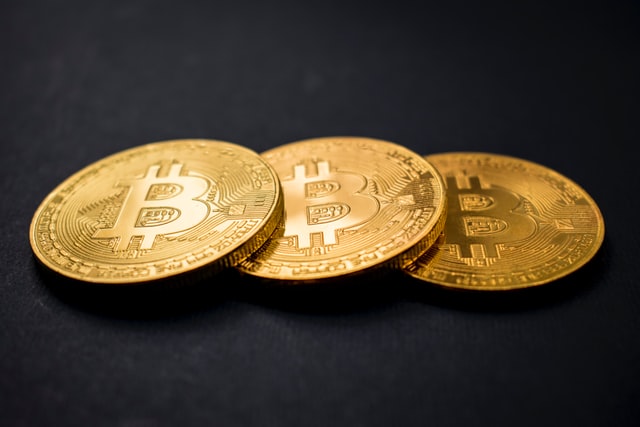
Simon Dixon: The reason that I discovered Bitcoin was because we wanted to build that non-fractional reserve bank.
We took those three trends and said, “How can we build a bank where you can own your own money, spend your own money, and the money doesn't get diluted by the whims of politicians?” That's when we found Bitcoin.
So Bitcoin gives you the ability to own your own money. It's like digital cash. It's yours. Whoever owns what's known as a private key owns the Bitcoin. You can spend it as you choose.
Obviously, if you want to commit a crime with that Bitcoin, that's a really bad idea because it creates a permanent ledger where if the government can attach an identity to that Bitcoin, then that's indisputable because it's verified by thousands of supercomputers around the world.
So it's not a good currency for crime, it's got like a hybrid model there where you have anonymity.
But if you commit crime with it, you better be careful, because that's going to be a digital record that they might connect you to in the future.
But you can spend it as you choose. And as long as you're doing legitimate stuff with that, you're not going to have those issues.
The money supply is 100% fixed and this is what really, really drove my interest in the market. Firstly, you have that outside of the financial system, and in 2011, it was really unclear whether it would succeed.
This was a very ideological driven experiment that just seemed so far fetched at the time, but the money supply is 100% fixed, and it's the hardest form of money that we have ever seen.
Simon Dixon: Now, when you've got this fixed money supply of 21 million, that actually is a decreasing money supply. Because when people lose Bitcoin, that is a ruthless system, if you lose your Bitcoin, those disappear.
George: You're done.

Simon Dixon: If you lose the private key, the money supply contracts. Really, we've created this digital scarce asset, the first scarce asset that can be digitally sent, which is to me, one of the most amazing…
Now couple that with the fact that the majority of the world think it's a Ponzi scheme, a scam, a currency just for drug dealers, or just a get rich quick scheme.
Which is brilliant, because when we first started, there were about 40 people in a room, but now we've reached the phase where pretty much the whole world, wherever I go in the strangest corner of the world, they've heard of Bitcoin.
They may not know what it is, and they may think it's a Ponzi scheme, a scam, a currency just for drug dealers or a get rich quick scheme.
But the really interesting scenario that we have with Bitcoin now is that it started to reach commodity like properties. It's not a store of value like gold.
Gold is, if you want to preserve your wealth outside of the financial system, then gold is still king, but Bitcoin is a speculative store of value. What that means is that Bitcoin could be a much better store of value than gold, but it doesn't have 5,000 years of history.
It's only got 10 years of history. It's got properties that are much better than gold in terms of actually fulfilling that eventually.
But there's a speculative element to it, which is that no one really knows whether that's going to happen or not. Personally, I think it's an inevitability and I'm willing to make a big bet on that.
But the speculative side of it means that while the majority of the world think it's a Ponzi scheme, a scam, a currency just for drug dealers, or a get rich quick scheme, every year we have seen, the reason it's producing 9,000,000% returns over 10 years is because each year more people realize that is not.
And we're still at that stage where it's still in its infancy, where more and more people are realizing that it's not.
Now it's getting more and more institutionalized with products like ETFs coming through, regulated funds coming through, and iconic investors and hedge funds like Paul Tudor Jones saying that they're going to put 1% of their hedge funds into bitcoin.
More and more people start to realize that it's not, that is the discrepancy between.
Simon Dixon:
When Bitcoin becomes a store of value, it will only produce the returns that gold do, which is maintain wealth, but in the meantime, it's still a speculative store of value, which in my perspective creates one of the highest return, risk-adjusted returns, that you can have out there.
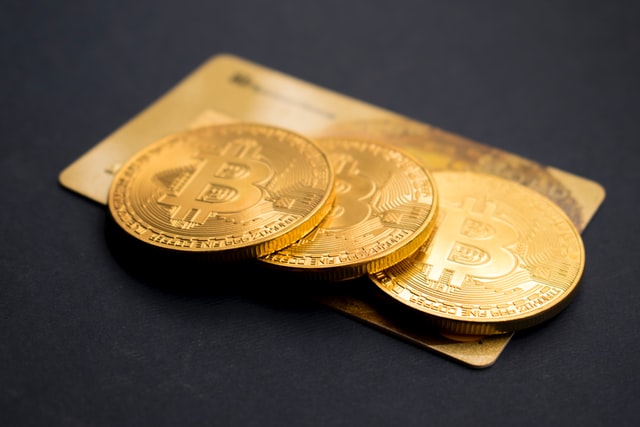
Now, it's still very, very risky. This thing could all fail, but I don't think you'll find better odds.
The fact that this speculative nature still exists means that you get to crucify the returns that you could get in gold, which it has every single year since it's been in existence.
And even if you don't believe in that, then just take some of your Bitcoin returns and use it to buy gold. So far, it's been a great way of accumulating wealth.
Personally, I believe that it can be a better store of value eventually, but there's massive rewards, if it does, as a result of those that don't believe it yet.
Each year, more and more people are converting. Why?
Because of the utility of money that you can own increases every year. The utility of being able to spend your money increases every year, and the utility of a fixed supply digital assets, the world's scarcest asset we've ever seen, increases every year.
Bitcoin: A Transacting Method Or Store Of Value?
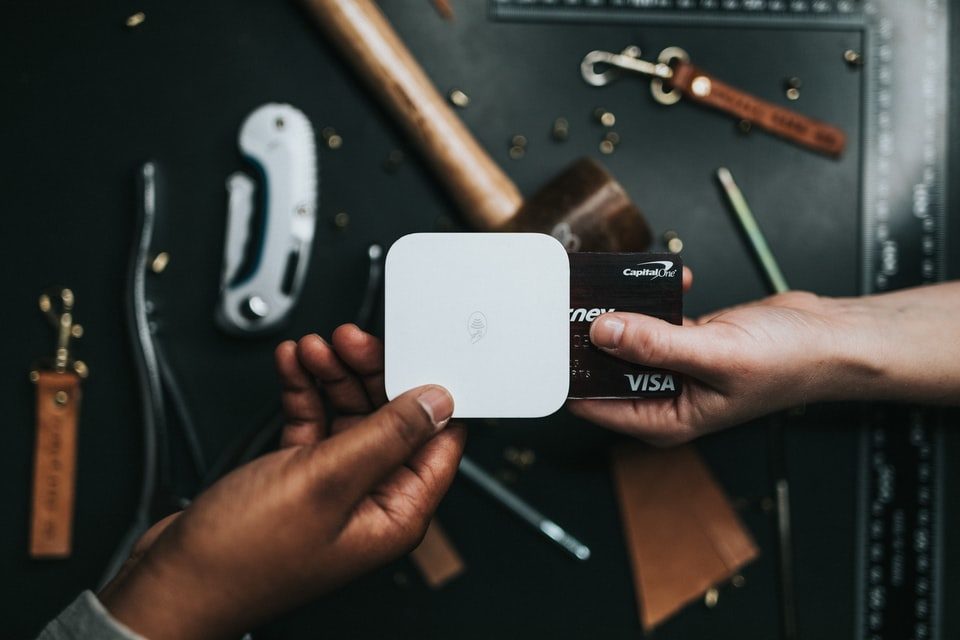
George: Okay, I got a lot of questions here.
First, in 10 years, 20 years, do you see Bitcoin becoming a method of transacting daily, or do you just strictly see it as a digital store of value?
Simon Dixon:
Bitcoin is strange, because it's got currency-like properties, commodity-like properties, some people see it like a stock that doesn't pay a dividend. It's got many of these properties and it's a very unique asset class on its own, which confuses many people.
I, over the years, have done thousands of transactions in Bitcoin just like a currency, but I also have Bitcoin just as a commodity. Bitcoin allows you to do these different things.
Couple it with the fact that it's actually just lines of code and therefore you can program it to do certain things.
It's very confusing to a lot of people because of that reason. So people are always trying to put Bitcoin into a box. The reality is it can fit into those boxes, it can fit into whatever box.
Now, there are some limitations and this is a really big debate within the Bitcoin community, of whether it should be a purely transactional-based currency or whether it's more like a store of value that's expensive to actually move, and encourages saving and discourages spending.
So the classic joke in the industry is we are all what we call Bitcoin Pizza Guys.
So, the Bitcoin Pizza Guy was the guy that bought two pizzas for 10,000 Bitcoin, the second-ever transaction in Bitcoin.
So when you spend what is probably today $100 million on two pizzas, at today's value, it really does not encourage you to spend it. So by nature, you tend to be a hoarder of these things.
Bitcoin’s Use Cases
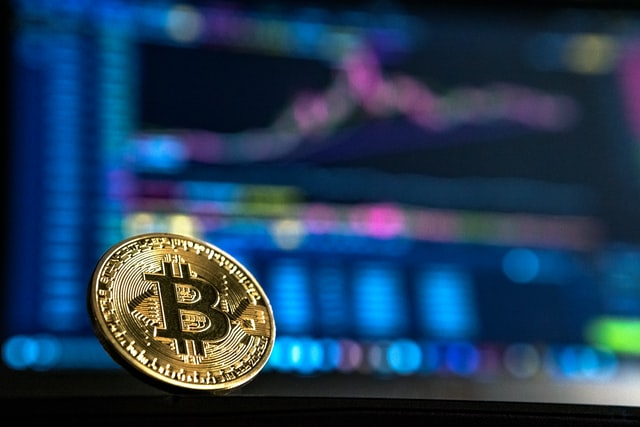
Simon Dixon: But what we're seeing is that innovation is being built on top of this technology, which fulfills different use cases. So for example…
- You can build on top of it a digital dollar. It's called a Stablecoin, and this is where things get really, really interesting.
- So some of the companies that we're investing in right now… I've always been a believer in equity in these crypto companies that serve me very well, but some of them are doing really interesting things like taking the technology, launching another token that exists on the technology where that token is backed by dollars or it could be backed by treasuries, for example.
- Some people are doing it where it's backed by trust structures, where they're taking the level of FDIC insurance, segregating all the back ends across multiple banks so that therefore they're all FDIC or in the FDIC insurance threshold, or they're just backing it by treasuries as well.
So you can get these things that act like Bitcoin, you can send it as simple as sending an email, but it's backed by treasuries or is backed by bonds, and then you can create products that are essentially better than money at a bank for certain thresholds.
I don't want to go too complex because if someone's just trying to understand Bitcoin, then you start piling on all this other stuff, it can get very confusing very quickly and very murky.
But this is where, it appears that the commodity-like features of Bitcoin mean that it's going to be more and more expensive, the more to send, the more people that get into the system, and the more people that use it.
This means that it probably won't fulfill that use case of an everyday transactional currency. But developers are building technology to try and make that happen. And then you've got this interoperability between different products that can fill those use cases, and you can program them into the Bitcoin ecosystem.
So, it's like, most people have no idea how their debit card works, and if you try and understand how your debit card works, you'll give the same look that most people get when I try and explain the Stablecoin.
George: I always tell people, I see Bitcoin and gold as two completely separate asset classes. I say it's not even apples and oranges. It's like oranges and Ford pickup trucks.

I just look at gold, physical gold, as an insurance policy. I don't think gold is a way to get rich, I think it's a way to stay rich. If you get rich with it, fantastic. But I just see it as insurance.
And then on the other side of my portfolio, I've got 10% allocated to speculations, and my definition is I just think they're going to go up in price.
I think Bitcoin falls into that category. I don't know of any other speculation that could potentially have more asymmetry when you look at the potential downside compared to the potential upside.
Simon Dixon: Yeah, exactly. I think this is really important, and this is where I think you've done a great job in terms of educating people that you need to think of different things for different use cases.
The money that I spend, I only hold as much money as I need to spend over a certain timeframe.
And that will be in the local currency of the jurisdiction that I live in because I don't want to speculate on my local transactions, that's something everyone needs.
But then what you do with your savings is different, just because I'm in a country that has one currency doesn't mean my savings should be in that country.
So then you have a speculative element of which currency you save in. Then, you obviously want to, because cash is not king, you need to put it into asset classes in order to beat inflation.
You have these different ways of looking at things. One of the things that I'm doing at the moment is forecasting that we…
Personally, I believe that we're locked into the Great Depression of 2020. I think that's an inevitability, we're here. I think we're going to see a big monetary renegotiation, which no one knows where that's going to go.
I've got some ideas. I speculate it's going to be central bank digital currencies. But the reality is that politics and we've seen situations like this:
- 1945, Bretton Woods
- 1973, removal of the gold standard to the debt fiat standard
- And I think we're in a similar stage in 2020, 2021.
The 2020 Great Depression And How Bitcoin Plays Into It

Simon Dixon:
Initially, they're going to get through the social unrest, they're going to get through this health crisis, and then next is the financial crisis. We're going to see a ginormous monetary renegotiation like we've seen in previous years.
So one of the things that I'm doing right now, believing that this is the Great Depression in 2020, is thinking about what I would do if I were starting from scratch with my money right now.
I'm actually going to be publishing a video series where I take $1 million on my personal savings and invest it right now for the Great Depression of 2020.
I've been looking at what the portfolio would actually look like. I think everyone needs to recognize that there is a traditional portfolio.
So I subscribe to Ray Dalio's theories around you don't know what the future looks like so you need a portfolio that can perform in inflation, deflation, economic growth, or economic decline.
George: Have you read Chris Cole's paper?
Simon Dixon: I haven't read that one, no.
George: Okay, I suggest that highly. When we get done, well, I'll say it right now for the viewers.

It's Chris Cole if you just Google it, has a paper called Allegory of the Hawk and Serpent.
It's a very quick read, maybe 20 pages, where he goes over what he calls The Dragon Portfolio.
To your point, it's a portfolio that does well, and goes back 100 years. Whether it's an inflationary deleveraging or a deflationary deleveraging, compared the 1970s to the 1930s or you have a big bull market in equities or bonds, it always does relatively well.
It's basically gold, it's a little bit of bonds, a little bit of stocks, and then it's something going long volatility. It's a trend following strategy with commodities.
Simon Dixon: Yeah. I mean, awesome, that's the makeup of a portfolio that can perform.
There's certain asset classes that perform in all of those seasons. When you don't know what the monetary renegotiation is going to be, you've got no choice but to prepare for those eventualities.
So that's what a traditional portfolio would be.
I personally believe that everyone needs an alternative portfolio that exists outside of the traditional financial system as well.
So my belief is we're going to enter into a depressive environment. I do believe that whether we enter a hyperinflationary environment or an asset deflation environment is 100% a political conversation.
Simon Dixon: I've got my speculation on what I think is going to happen, but I'm willing to be wrong.
But I believe that everyone needs a plan for what if the traditional financial system doesn't get repaired in a way that we're used to. So to me, that's where a Bitcoin-based portfolio comes into play.
So in my traditional portfolio, gold fits into that. Gold is a great mechanism for some of those eventualities that may happen.
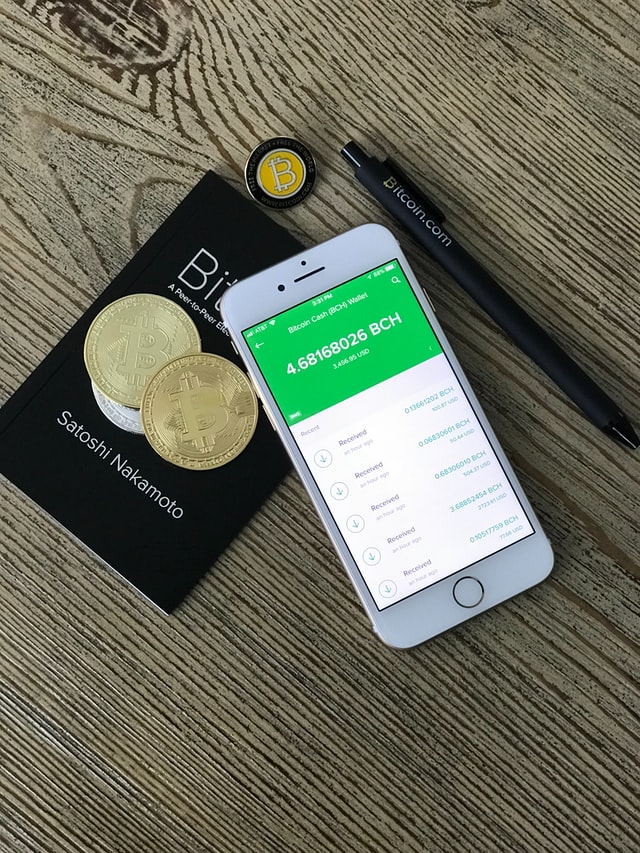
But then I believe that you don't have to subscribe to Bitcoin as the future to want to hedge yourself in case something happens.
Simon Dixon: If you believe the traditional markets, that governments will always figure out a way, and I do believe that they will figure out a way, then you can have 80% of your money in traditional markets and a small percentage of your money in an alternative.
For two reasons is why I will do that.
- One, because it hedges against the exposure that the traditional financial system is a Ponzi scheme and can't be renegotiated, which I do believe it is.
- But secondly, just in case there's this opportunity to potentially receive disproportionate returns that can supplement your portfolio.
So when I see Paul Tudor Jones, I think he's redefined the hedge fund industry because if Bitcoin from the past equals the future, which is no guarantee, of course, then his hedge fund is going to be disproportionate returns and other hedge fund managers are going to have to get in just to try and match what might happen to Paul Tudor Jones's hedge fund.
George: Like hedge fund FOMO.
Building A Portfolio In the Crypto Space
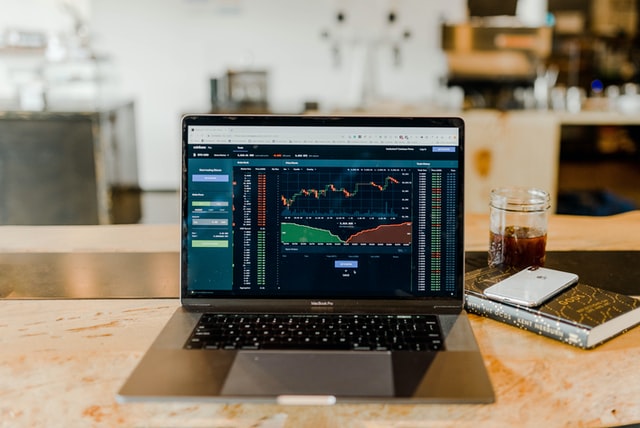
Simon Dixon: Hedge fund FOMO, I believe you're with central bank. I'll cover this one after but let's return to that central bank FOMO because I think that's coming too.
But back on the portfolio side, once you enter the Bitcoin industry, you are bombarded by scams, people that want to steal your money. People telling you this is the next Bitcoin. This is the killer. Don't buy Bitcoin. And it's just a massive confusion for people, which has been a real disservice to our industry.
But then again, that's why the returns are disproportionate because the majority can't get through those hurdles.
So when I look at a portfolio in the crypto space, the vast majority of it is Bitcoin.
I believe that Bitcoin is our world's best shot at achieving hard money that we've ever seen.
It's not called money now, but it could be in a speculative, there's nothing that competes with Bitcoin. Its commodity-like properties don't exist in any other cryptocurrency.
They're all associated with somebody that owns the vast majority of them, that created it or associated with a company or a particular character that promotes them.
But Bitcoin doesn't have that because it was created in a time when no one cared about this, it didn't have a price. It wasn't speculative.
The founder was anonymous. He still is anonymous, so it's very different. It's got that commodity-like feature of gold compared to anything else.
So the vast majority of it will consist of Bitcoin, but then there are amazing opportunities now if you're willing to take counterparty risk.
So why do I like Bitcoin? I like it because I don't have to take counterparty risk. For me, that's a hedge, no counterparty risk.
Yielding With Bitcoin Where Traditional Finance Can’t

Simon Dixon: But then I like to take some counterparty risk with it. So let's say, imagine some of my Bitcoin, the majority of it is no counterparty risk.
But now there's financial products that are yielding where traditional finance can't yield.
You can actually lend out your Bitcoin in a collateralized loan and receive interest that you can't receive anywhere else and you can compound that.
So if you're actually putting together a Bitcoin portfolio…
- You can have some of it, which has no counterparty risk.
- Some of it which has counterparty risk
- And you can compound the interest, and it's lent to speculators that put up collateral in order for the derivatives market, so it's all collateralized. You can even do things like… This is where people get a bit confused.
They talk about well, they look down the coin market cap and they see these things like Ethereum.
Ethereum has got nothing to do with sound money. It's not going to be hard money. It wasn't designed to be hard money. It's never going to be hard money. But people think is Ethereum the next Bitcoin?
It's a natural thing for people to think. It's actually turned out to be a protocol for building financial products that exist outside the financial system.
Its incredible developer community has actually built, every single financial product that you know in the traditional financial system. They have rebuilt it in a way that doesn't have counterparty risk and exists outside the financial system.
So now you can actually get these financial products where you can essentially emulate, you can receive yield, you can stake, you can do these things.
And remember what I talked about earlier? You've got these things called Stablecoins, which essentially are a blockchain representation backed by real dollars, treasuries, different structures or trust structures.
Which now means that you can essentially off-board your fiat to your dollars if you're not from America and you need dollar exposure, because you believe that America, 70% of all the world's savings are in dollars or all transactions are in dollars.
Simon Dixon: You can actually hold it in a Stablecoin without necessarily bail in risk, without some of the risks that you hold by holding it in a bank, and you can lend it out and yield it. You can use that to try and increase your Bitcoin position.
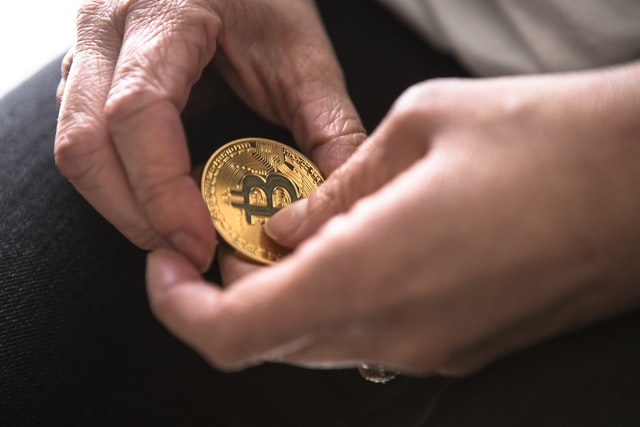
So one of the things we're trying to do right now is put together, after 10 years of seeing all this innovation, put together a really simple way of taking advantage of these opportunities by having a portfolio that exists outside the traditional financial system.
So that you can have your traditional portfolio that would still perform even if the financial system didn't work anymore, and then also take some counterparty risks so that you can compound the interest and use traditional investment principles to really increase your Bitcoin position.
It is actually one of the most exciting times in financial history. It's just such a shame that the vast majority of the world are in month to month disastrous situations.
It makes me upset the situations that people have found themselves in, because of these debt cycles driving everyone into debt, living month to month, but actually, there's this incredible amount of innovation.
It's just most people don't get to take advantage of it because they're living month to month. That's why financial education is so important.
Can We Rebuild The Traditional Financial System With Bitcoin?

George: I'm trying to write down these questions here, because I think you've touched on some really important parts.
Number one, we've got a financial system right now that we know is less than desirable, to put it mildly.
- How do we make sure that if we create all of these other additional products based on Bitcoin, that we're not creating another financial system that is just as bad but it's just backed on Bitcoin with all these derivatives and all these other products?
Or am I not seeing something?
Is there some way fundamentally that Bitcoin prevents that from happening?
Simon Dixon: No, Bitcoin can't prevent that from happening, but what you can ensure is that on the protocol level, this supply is apolitical. There's 21 million, that is never going to change.
Can someone come along and create a fractional reserve bank? Yes, they already have. So, one of the disaster stories of our industry was a company called Mount Gox.
Mount Gox was the first crypto exchange, and essentially, what it did is when you deposit your Bitcoin with Mount Gox, you don't own those Bitcoin.
They promised to repay them to you but they're not yours anymore. You don't own the private key.
When you try and speculate, you have to give up ownership of the private key, send them to an exchange, and therefore you're in the banking system again. They could spend them as they choose. You didn't know what they're doing with those Bitcoins.
And it turned out with Mt. Gox, that they were actually creating balances that didn't actually exist and those Bitcoins were hacked or stolen or siphoned away.
So everyone's balance at Mount Gox was greater than the number of Bitcoins that existed.

So the key here is that you can create a non-counterparty risk financial system.
I believe that some of the financial innovation has happened in the traditional financial system, and to keep this system alive has been a remarkable feat of financial engineering.
A lot of that financial engineering when applied to money that can't be expanded, money supply that doesn't combine debt with money creation, you get to experience…
A lot of those financial products can exist, but it's based on hard money.
Simon Dixon:
If you believe that Bitcoin is hard money, then you're building this on hard money. Now, take counterparty risk, and you have all the problems with the traditional financial system.
It's one of the reasons why I invest in equity of crypto exchanges because when Bitcoin's crashing, they do really well. When Bitcoin's going up, they do really well.
- So, by having a diversified portfolio and equity in all of these companies, you get to hedge a lot of your Bitcoin exposure.
- With Stablecoins, you get to hedge some of your Bitcoin exposure.
- With yielding products, you get to hedge some of your Bitcoin exposure.
But if you're in the long term, and you believe that the demand for the money you can earn money and you can spend and hard money, if you believe that Bitcoin fits in that equation, then the only place where more and more people can get involved is by paying a higher price for it in the future.
The Economic Struggle, Inflation, And A System Based On Debt
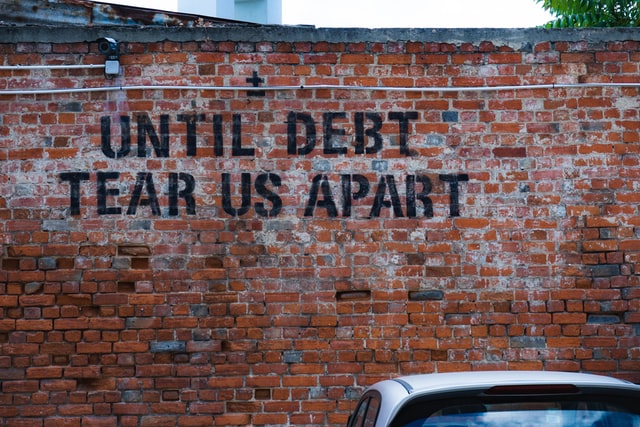
George: Yeah, but it all goes back to hard money. That's really the key, that's the foundation for stability. It seems like in any financial system. Can you touch on that briefly?
We talked about how, unfortunately, right now in the United States and a lot of developed worlds, there's just people at the bottom of the ladder, the economic ladder, are really struggling.
And I think what we're seeing now is just kind of the symptom. The real cause, in my opinion, it has a lot to do with inflation. If you look at the amount of inflation we've had since 1913, call it 2,000%.
And if you really start to think through what inflation forces people to do, and go into financial assets and to speculate just to get ahead, and compare that to something that would be deflationary, where your money, your Bitcoin, your dollars, whatever, actually increased in value, it becomes this whole entire paradigm shift.
So can you first start by explaining why it's so detrimental and why it causes such almost a moral hazard from a standpoint of risk-taking, if we have this constant inflation?
Simon Dixon: Yes. So you've got two parts, which I believe, has driven people into such an unfortunate situation.
One, you've got that inflation, which, obviously, drives you into speculation and the rich that actually speculate on the right side of that.
Then you've also got the fact that our system needs you to go into debt, and everything is designed around making you go into debt.
If you think about just basic concepts of why do we put interest rates up and down…
People don't think of these things, but essentially because we've combined money-creation with debt, in order to have an economy, we have to have more debt. In order to have less debt, you have to have less money. That's the rules of our current system.
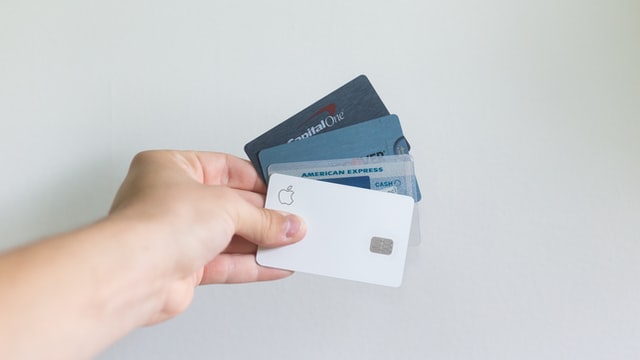 So in order to have more money, you need to encourage consumers to go in debt, businesses to go in debt, governments to go into debt and you need to create policies around that.
So in order to have more money, you need to encourage consumers to go in debt, businesses to go in debt, governments to go into debt and you need to create policies around that.
So what we've seen, if you think about it, what's the way of doing that? Well, you decrease interest rates, so that you can stimulate people taking on debt.
And what are those people doing? Well, those are the people that are creating money. Every time you take on debt, you create new money, you're the hero of the economy.
You did what the government needs you to do. You created the money supply that needs to exist to get into a cycle.
George:
But usually, that money creation is to consume, unfortunately, and not to produce.
Simon Dixon:
Exactly, so the rules of finance are really, really simple. Spend less than you earn and invest the difference. That's it. It doesn't matter what your income is.
Spend less than you earn, invest the difference, then you got to just try and figure out how to beat inflation.
If you do that for the rest of your life, you could just be on an average income, and you can retire wealthy, but that's not the behavior that people are driven into.
They go straight into university, take on a bunch of debt, straight into consumerism, take on a bunch of credit cards, and they start their life there.
It's the sensible thing to do when your money is worthless and less and less in the future.
If you think about it logically, going into debt is the right strategy, if your money is going to be worth less than the future because you repay less in the future.
So we're talking about the lower interest rates everyone takes on debt. What happens is a bogey called inflation comes along, so in order to try and control that, they have to increase interest rates.
What's that doing? Well, it's essentially sending the people that borrowed the money bankrupt in order to cool down the economy.
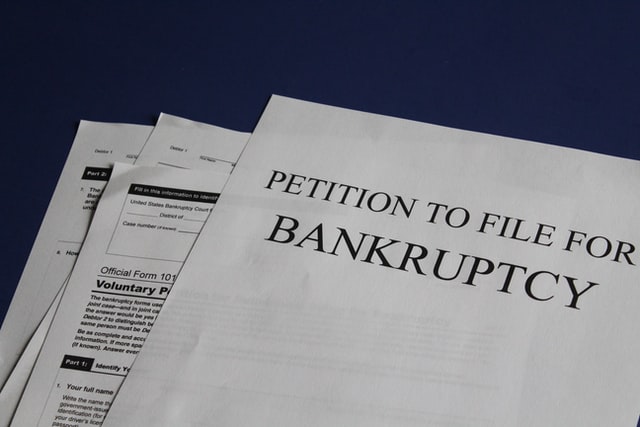
So the very same people that took on the debt and saved the economy have to go into bankruptcy and default on their debt because interest rates are going up, and this is your business cycle.
This is the cycle that people are continually going through, and you end up at each cycle with greater levels of debt. When you can't find a way of taking on debt, you find another financial engineering.
What did they do in 2008? Well, they figured out a way to essentially offload the risk and get a bunch of people to take on real estate debt, packaged that up so the retail bank would pay all these brokers and everyone to find the real estate debt, they would find more and more people to take on the real estate debt.
Simon Dixon: Important trend is you always need to find a new way of getting that debt to increase so that you can increase the money supply, and therefore, eventually everyone has to be in debt.
There's only a few eventualities. The end for all of these systems is that you either enter into increasing and increasing and increasing tax, so that essentially you're moving towards socialism, then something looks more like communism.
And these are the eventualities when you put these trends here. You have civil unrest and a monetary reform, which I think is what we'll be seeing next.
The savior to me is competing systems that allow you to walk out so that you can hedge yourself no matter whatever happens and that's where I think everyone needs to discover this industry and it would be to different degrees.
If you really believe that Bitcoin's the future, then you can put more of your wealth in that, but Bitcoin people are sometimes, they're a bit crazy with their exposure.
They put everything in. It's a really hard asset class to manage your personal affairs and life around.
So there are lessons to learn from the traditional markets and there's lessons to learn from the Bitcoin markets.
George: Yeah, I totally agree. So I know I'm taking a lot of your time, Simon and I sincerely appreciate your generosity here.
I just got a couple more questions to kind of tie things up. First, I just want to make a comment on what you said about inflation.
Everything that Simon was saying, just think if we had deflation, or if we had a hard money, a limited money supply, whether it's Bitcoin, I don't care what the money supply is, as long as it's limited, the opposite of what he just said would be true.
Alternative Financial Systems And The Government’s Role In Them
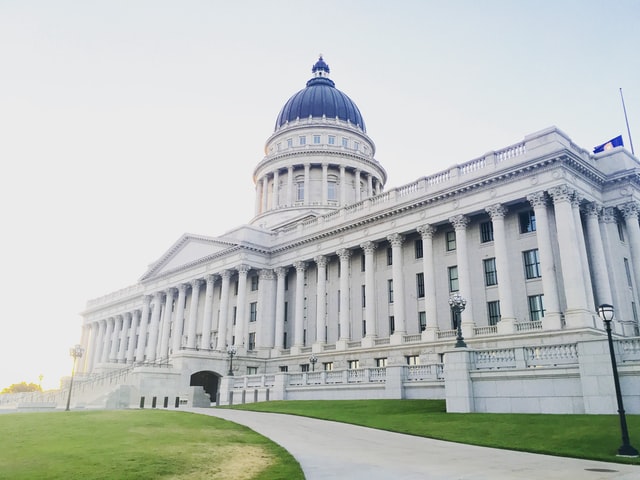
George: So all the bad stuff he was talking about, we'd have good stuff instead, I think that's the simplest way to put it. And then lastly, Simon…
How do we make sure or can we, that the government doesn't come in and see these competing systems outside of their own and say…
-
“You know what? This is not going to pan out, we want total control. Therefore, we're going to make this illegal to transact back and forth”?
I understand the argument that Bitcoin is outside of the system and it's anonymous. Therefore, technically, they really couldn't monitor those transactions like they could a government-backed digital currency or even an electronic dollar.
But my concern there is it's kind of the same thing as drugs, wherever you go around the world, pretty much cocaine is illegal, or heroin or something like that.
And yes, you could find ways to buy heroin, but most people aren't really going to be willing to do that because the penalty is so severe if you get caught.
-
So how do you see the government's role and what they may do in the future?
Simon Dixon: Yeah, this has been a constant question over the last decade and with each year, it gets less and less risky until you have a system where governments really, really want to take back control.
And we saw that and gold has been illegal in the United States, and we've seen that those things can exist. The interesting thing that comes from that is that thankfully, we are in the nation of currency wars.
So what I think that Bitcoin can become in that scenario is a tool in the monetary renegotiations that central banks can use in order to try and win more control.
So, we've seen already that in China, they made the exchanges illegal. They didn't make Bitcoin illegal. They made exchanges illegal.
The interesting thing is people were still mining in China, which is actually a strange one because essentially, you buy machinery with your yuan.
You use it to deploy electricity and you end up with Bitcoin on the way out, which is the best type of Bitcoin exchange.
At least you have to do KYC, you take the data, you know who they are. If there's nefarious activities, they have to comply with regulations. So it's weird that they allow that one. But anyway, that's an aside point.
I believe that in currency wars, Bitcoin is going to be used as a tool just like gold has been used as a tool in the past.

So imagine if you're a small country, and you wanted to actually have a play of becoming more significant in the world, well one way you could do that is you could take a percentage of your country's electricity and dedicate it towards Bitcoin mining and accumulate a position.
We saw this actually in Bulgaria. In Bulgaria, a criminal enterprise accumulated 200,000 Bitcoin, and the government agencies took all that Bitcoin and the value of that Bitcoin became greater than the entire national debt of Bulgaria and the Bitcoin just disappeared. People still don't know where it is.
Simon Dixon: So it was obviously siphoned across political corruption.
But, the country was able, if it wasn't corrupted away, the country could have paid off their entire national debt as a result of confiscating that 200,000 Bitcoin from a criminal enterprise.
Now put that to the country level. We're talking about asymmetry. If you're a country and you want to dedicate some of your electricity to mining Bitcoin, you can accumulate a position in that.
At some point, your central bank could just simply say…
“We have decided as a result of the trade wars, the currency wars or we don't like the fact that China is devaluing their currency, or we don't like the fact that the U.S. dollar is doing this. And so we own treasuries, we own dollars, we own gold, but we also own some Bitcoin.”
And the effects of that would create such a stimulus in the price when the first central bank announces that they are holding some of their reserves in Bitcoin.
It creates an opportunity for the first central bank to do that.
And then you have central bank level FOMO, whereby the last central bank that accumulates a Bitcoin position, oh, by the way, countries like Japan, they already have banks that are mining Bitcoin.
SBI has invested significant amounts of money in mining Bitcoin.
Japan has been putting together a regulatory structure to support this industry to try and get ahead of this.
Couple that with some of these U.S., China trade wars that we're starting to see, I think that you can see some some some players wanting to use this.
Obviously, the large currencies, yuan, euro, dollars, they're going to be the last to adopt because they got the most to lose. But it's when you have these competing currencies and competing currency wars…
So I think that if one country makes it illegal, then another country will use that opportunity to try and gain some power in a time of these monetary renegotiations and currency wars. Why? Because it's apolitical so it's the only currency that is not connected to some other government's agenda.

Simon Dixon: We're seeing right now with the World Bank. India's taken out $5 billion from the World Bank.
These are U.S. dollar-denominated loans that are probably going to be strengthening against the rupee.
They're also tied to healthcare expenditure, where essentially, it's one thing being in debt to your own central bank. It's another thing being in debt to another central bank.
This is one of the challenges with Europe taking some of this ECB money now. While you don't take currency risk there, but imagine these World Bank loans that India are taking. That can cripple your country.
And when you follow the flow of money, these dollars often end up, the World Bank lends these dollars and they often end up back in the U.S. The World Bank created that money, it was money creation.
India borrows it, and then maybe they borrowed it in order to do public expenditure of their healthcare system. And America's got exporting goods or China's exporting goods.
And that money often ends up in another country. So we all know China is holding vast quantities of dollars and treasuries. That ends up in another country, but the debt remains in that country.
So this can be completely crippling, and I think when you use this tool, I think it's going to eventually be used at the central bank level, at the political level, just like gold has been used in previous currency wars.
That's a really interesting thing that can happen and can combat some of that what if our country banks.
We've also seen a buoyant peer to peer market with the countries that have banned it, countries like hyperinflationary countries like Venezuela and stuff like that.
We've just seen ginormous premiums for Bitcoins in those countries, and this is definitely not an optimum environment.
I wouldn't want to, people don't like to commit crime if they don't have to. So it will definitely hurt things in the short term.
But I don't think in the long term, unless you coordinate every government in the world to actually simultaneously do this, then I think that there's always going to be an opportunity for a competing country.

Because what does the world want? The world wants jobs. There's a lot of jobs in this industry. It's why small islands like where I am, they're always trying to support.
This was the first, Isle of Man, was the first country that tried to support Bitcoin in 2014.
Unfortunately, because it uses the Manx pound, it's connected to the Bank of England and the Bank of England called them and said, “We'll remove clearing to your island if you support this industry”.
But it still has the opportunity right now to create a digital pound using Stablecoins, support the Bitcoin industry and use it to get employment rates in a time when our island is legally mandated where it can't take on debt. So it has to balance its books.
Simon Dixon: What's it going to do to balance his books? Well, it needs to find real growth opportunities. That's where I think that these competing countries…
And it might be illegal in one and then again you've got the riots on the streets, civil unrest, I turned to that.
I can't imagine in today's environment making Golden Eagle again, and I see similar things for Bitcoin, but countries will do it. It will happen.
But the reality is, there's still only going to be 21 million of these things. It's still going to be scarce. It will massively crash the price. We've seen it.
I've seen my $30 Bitcoin crashed at $3 in one day. I've seen my $1,250 Bitcoin crash to $250 in a month.
I've seen my $20,000 Bitcoin crash to $3,000 in a period of a few weeks. I fully expect my $100,000 Bitcoin to crash to $30,000. We will see it again.
It's what drives out the weak hands, and it's why a bit of sound investment principle comes here.
You can get wrecked if you try and call the tops, call the bottoms, dollar cost average in, put together some sound principles, asset allocation, understand the industry, combine these traditional investment principles and that really is one of the most interesting opportunities to build a portfolio that exists outside the financial system.
Maybe you don't even need it, but what we've seen is that it's producing 9,000,000% returns over the last 10 years. I'm not saying the future equals the past, but the opportunity, to me, all the trends are pointing towards money you can earn, money you can spend, hard money.
George: Yeah. Yeah, for sure. All right, but in the sake of time, we will leave it there. Thank you so much for this conversation, absolutely fascinating Simon.
For my viewers who want to find out more about what you do, or maybe some of your investments, do you have a website or can you give out your Twitter handle?
Simon Dixon: Yeah, sure. So on Twitter, I'm @simondixontwitt, T-W-I-T-T.
I got stuck with that 10 years ago when I signed up, if I'm not mistaken and I just couldn't be bothered to change it.
And I'm producing a lot of content on YouTube, Simon Dixon, so I've archived the entire history from the first Bitcoin conference in the world to pre Bitcoin monetary reform and to keeping up to date with where the markets are today.
My business is bnktothefuture.com, which is where sophisticated high net worth accredited investors can build a portfolio in equity in the financial technology, Bitcoin and crypto industry.
I'm an investor in over 100 different companies in the industry, and eight of those have gone on to become unicorns and we've put together a private equity platform for that.
George: Fantastic. Simon, I can't wait to do it again, buddy.
Simon Dixon: Okay, I'm sure we could cover more content, but honestly George, I was really, really inspired by your content.
I think you've done some amazing stuff. I think financial education is such an important thing. And the level of research that you've done is really awesome. So keep doing what you're doing.


Comments are closed.